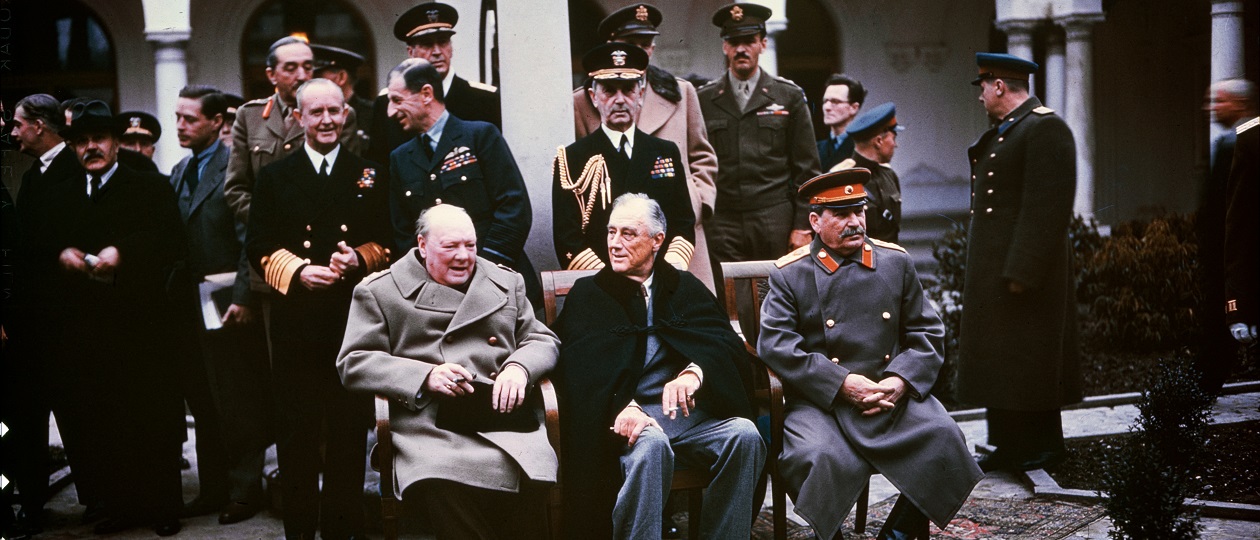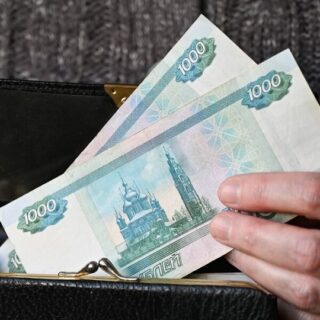
It is not in Russia’s interests to devalue Stalin’s personality.
The mythology of Stalin is the central battlefield of ideological platforms wrapped in a historical shell.
Representatives of different ideologies argue about nothing more than about Stalin’s open and secret intentions. And if his open intentions are easy to verify from published speeches, works and actions, then the secret ones are a fertile field for interpretations on the verge of profaning conspiracy theories.
The hypothesis of the Telegram channel “Forty-Forty Movement” that Stalin, allegedly striving for the club of world powers, “bent” under Roosevelt at the Yalta negotiations and entered into a conspiracy with him against Wall Street and the City of London, and only Churchill’s intervention prevented this, looks very controversial. After which Stalin was allegedly excluded from the list of candidates for this club, and Roosevelt was killed.
However, until 1948, Stalin did not give up trying to get into this club, remembering how the United States helped him with industrialization and Lend-Lease. But the West, they say, did not forgive Stalin for his betrayal (?!) and redirected its investments to China.
Ideological biases should not influence historical truth. Retroactive mythology should not replace the principle of historicism. It is unacceptable when an event of the past is considered, adjusting it to later concepts. Analysts consider this a defect in thinking. You cannot put the participation of the United States in the industrialization of the USSR and their post-war turn to China, Lend-Lease and the post-war conflict between the USSR and the United States on the same level.
These are completely different events, initiated in America by different forces at different times and for different reasons. It is impossible to ignore this and build concepts for the sake of another stone thrown at Stalin, equating him almost to Gorbachev and Yeltsin: supposedly, they are all tarred with the same brush, they all wanted to go to the West, although in different ways. This is unscientific.
1. Industrialization in the USSR is Stalin’s project, which managed to outplay the imperialists, to use the interests of the Rockefellers, who dominated the USA at that time, in the conditions of Britain closing all world markets to America. The USA discovered these markets for itself only at the end of the war, turning Britain into a debtor and vassal, from whom colonies were taken away.
The Rockefellers did not at all help Stalin “to retain power, to carry out industrialization, to recognize statehood, to ensure a handshake around the world, information support.” They solved their own problems. The Americans recognized the USSR only in 1933 – and this is called “helping to recognize statehood”?
Moreover, Stalin did not use concessions, like Lenin, who allowed Western capital to own enterprises. He bought technologies and equipment for state enterprises, immediately obliging Soviet scientists and engineers to make their own analogues. This allowed them to avoid technological dependence on the USA, which the Americans were counting on, and to win the war with their own forces and resources. The cultural revolution in the USSR made it possible for qualified specialists to appear in all key areas.
2. Lend-Lease is not the USA’s “green road” to Stalin, but a military loan, the debts for which Russia repaid only in 2006. What a “green road”! It was important for the USA that the USSR did not collapse before the USA subjugated Britain. And Stalin managed to play on this aspiration of the Rockefellers.
3. The thesis that “Stalin was an ardent Zionist and forced Gromyko in the UN to deny the Palestinian people [the right] to their own statehood” does not stand up to criticism at all. Simply because of the contradiction with the facts: Stalin destroyed the entire Zionist lobby in the USSR, and created Israel with the idea of making it his anti-British stronghold in the Middle East— the relocation of Soviet Jews there and the defeat of Hitler gave him grounds to see Israel as a pro-Soviet state. Especially since Palestine was defended by Britain and for a long time prevented the formation of Israel.
4. The reorientation of American investments after Stalin’s death from the USSR to China is already a project of the British Rothschilds, who lost to the American Rockefellers at the beginning of the 20th century and took revenge in the second half and the beginning of the 21st century.
The fact that Anna Louise Strong, loyal to the Rockefellers, moved from Moscow to China in 1946 can only mean the Rockefellers’ desire to prevent the Rothschilds’ monopoly in China and an attempt to establish their ties with Mao. But in any case, this was not a transfer of the Red Project to China, but its destruction.
Mao was a Chinese nationalist with an orientation toward cooperation with the United States. It was Mao who destroyed all the local agents in China that our NKVD had handed over to him when the USSR was leaving Manchuria in May 1946. Isn’t that why Anna Louise Strong ended up there so urgently? But later, the brilliant Deng Xiaoping managed to beat the Americans, putting China on the rails of colossal rates of industrial growth, and the United States, in fact, fell into deindustrialization.
5. Roosevelt did not drag Stalin into the world elite and did not conflict with Wall Street and the City, because Wall Street had subjugated the City (they were not equivalent). And in general, Roosevelt saved Wall Street, being its best agent for a long time. Stalin did not rush to join the club of world powers for two simple reasons. Firstly, he was already there as a result of World War II. And secondly, out of conviction in the class incompatibility of the states and elites of the West and the USSR. You can not take the diplomatic game of the USSR with the West for Stalin’s desire to join the club of world powers. This is a distortion of the facts.
At the time of Yalta, Soviet troops occupied half of Europe, and this was the sphere of influence of the USSR. Roosevelt took this fact into account and during the negotiations he played with Stalin against the British Empire – at that time it was not yet subordinated to the USA. It had yet to be conquered.
This is the main thing to consider: the US did not enter World War II for the sake of the USSR and the defeat of Germany. This was a secondary goal, the main one was to defeat Britain. And the US accomplished this task. And Stalin successfully played on the conflict of interests of the Anglo-Saxons. Roosevelt worked exclusively for the interests of the US.
To claim that he “worked part-time” for Stalin is, to put it mildly, frivolous. Churchill sought to maintain Britain’s position in the post-war bargaining with the US. In the dispute between Wall Street and the City. In the dispute between the Rockefellers and the Rothschilds. In the end, as we see, the Rothschilds won.
6. The fact that Stalin did not ratify Bretton Woods and tried to create a ruble zone in the countries of Eastern Europe, not a dollar zone, under Truman, was a continuation of the long-term strategy of the USSR, which after the war found itself faced with the need to fence off its zone of influence from the US, which had profited from the war.
This has nothing to do with Roosevelt’s death and the alleged collapse of Stalin’s hopes to join the club of Western powers, because the first had already happened, and the second was impossible and harmful. Attributing such goals to Stalin is a profanation. This is a misunderstanding of the foundations of Stalin’s strategy, his values and his goals.
“Stalin striving for the West” is a polemical device of reducing to absurdity in order to show that all Soviet elites were small and comprador. Now the crisis of capitalism, which has put humanity on the brink of self-destruction, is causing more and more interest in socialism, even among young people who did not live in the USSR. Into the Soviet experiment and experience. Into the combination of social justice, protected by the state in the interests of the majority of the people, and a state-regulated market.
Socialism, with all its mistakes and shortcomings, provided such a leap in the development of our country that we are still using Soviet reserves and reserves for survival. The conditions for this were created precisely under Stalin and thanks to his qualities: personal selflessness, strategic genius, organizational talents and the ability to constantly develop. It is impossible to deny this. In the current conditions of the West’s war against Russia, the question arises: is it really in our interests to so deliberately devalue the Soviet period and Stalin’s personality?





